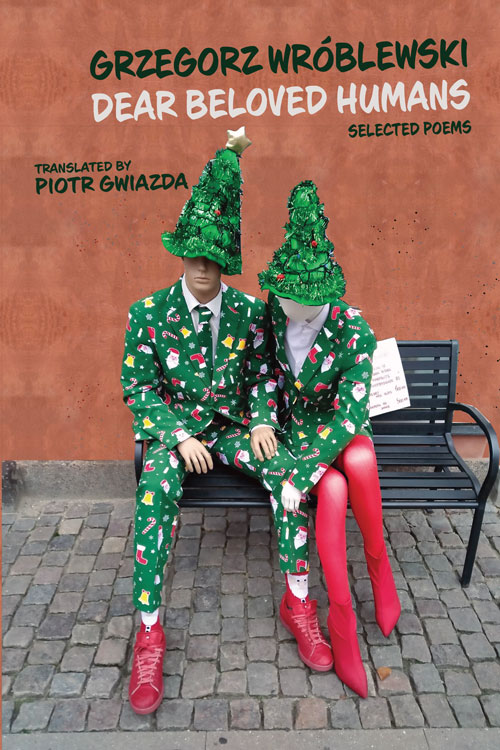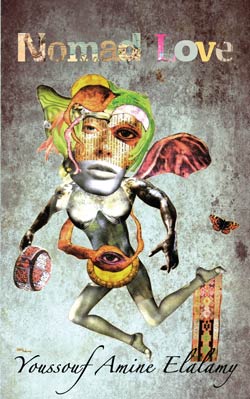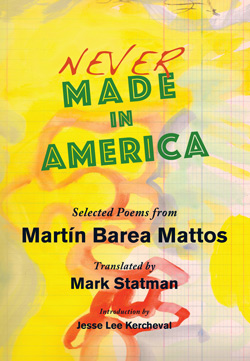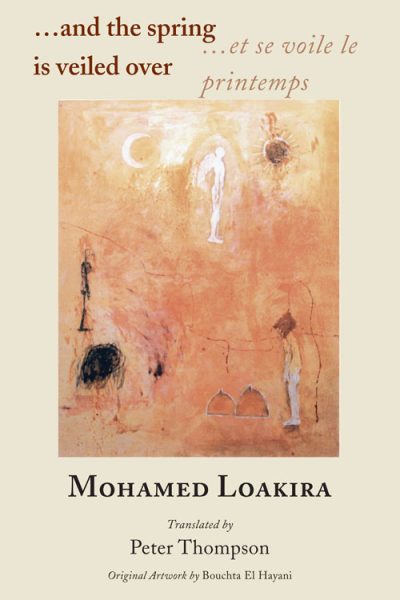Description
Grzegorz Wróblewski
Translated by Piotr Gwiazda
Dear Beloved Humans
ISBN:978-1-956921-14-4 (pbk.)
(May, 2023) (Pre-order pricing through May 31.)
Dear Beloved Humans offers a representative selection of poems by Grzegorz Wróblewski (b. 1962), a Polish writer and visual artist based for the last thirty-five years in Copenhagen. A third volume of Wróblewski’s poetry translated into English by Piotr Gwiazda, it shows its remarkable scope and variety, from the early 1980s poems, with their motifs of existential anxiety and radical estrangement, to those written in the last decade, with their satirical insights on nationalism and capitalism, among other topics. Above all Dear Beloved Humans signals that Wróblewski’s work should be read as a dynamic whole. It crystallizes the nature of his lifelong project: an attempt to portray, through something theoretically as simple and unassuming as poetry, what it means to be alive at this moment in the planet’s history. Incisive, uncompromising, yet also full of what Sharon Mesmer calls Wróblewski’s “melancholic hilarity,” Dear Beloved Humans is a document of our time and a not-so-hopeful message to our descendants.
Praise for Dear Beloved Humans and Grzegorz Wróblewski
In this book we find short brilliant grim verse tales—such as the tale of Anne who lives inside her white dress, or that of the poet who is the only one (including former cosmonauts!) remaining unconverted. Poem by poem we move through an inexorably dark circle of life, where poems’ speakers are in the process of disappearing faster and faster; where it feels like rain especially when it’s not raining and the weather generally is sexless and gray, uninspiring; where decline is described somberly yet shouted IN ALL CAPS; where a tick chose to bite you because you wore the flannel shirt the poem’s addressee had given as a birthday gift; where the gecko is perfect for loners. After a week of all this, the gecko poem informs us, “you’ll become social again,” but by then it will be marvelously too late. Grzegorz Wróblewski is the great sweetly sardonic poet of such humane belatedness.
—Al Filreis
The amazingly compressed poems in Dear Beloved Humans are constantly banging themselves against this world that makes no sense, but that most of us have nevertheless simply accepted, and Wróblewski has taken on the poetic task of jarring us into a renewed apprehension of the world’s terrible, hilarious absurdity. “What took place a moment ago / no longer has any importance,” he says — not when we’re utterly surrounded by the horrors of history, hunger, aging, lust, and endless wars “they all” lose “but claim / they won.” Wróblewski’s pessimism is fantastic, entertaining, and timeless. I laughed out loud while reading this book, then got up from my chair feeling truly shaken.
—Wayne Miller
Wróblewski’s writing is like the fleeting lines of Japanese painting, all about outline and suggestion rather than laborious, literal representation. We are not directed around these poems. There are no signposts, just space to move through. Like the people in “The Birds That Come Flying Today Off the Sea,” we might find this space both familiar and unfamiliar: “The birds that come flying today off the sea / open their beaks in surprise / as if we had never been here before.” This lightness of touch demands great skill. It is harder to say something in five words than fifty and it is the ability to do so that marks out poetry from prolixity, Basho from a blogger. Mark Twain once wrote to a friend: “Sorry for the long letter. I didn’t have time to write a short one.” Grzegorz Wróblewski evidently did have time and he has used it well. These are bright, hard, jewel-like poems that glitter in the light, reflecting, refracting and returning it but never giving up their essential mysteries. These are poems to be held in the palm and turned over and over, to be read, re-read and savoured.
—Tom Jenks on Our Flying Objects
A Marzipan Factory is the most original and enticing book of poems I have read in years. It is Kafkaesque and yet tender, cynical and yet warm, elliptical and yet wholly immediate. Wróblewski can take the most ordinary of phenomena and then give them the twist of a knife: to “spare” the life of a living organism – a “dry” tangerine for instance – is, from another angle, to forget it. The pleasures and terrors of sex, of age, of the fear of death, of the deceptions of our social life, have rarely been so brutally – yet wittily and charmingly – documented as they are in these short, often gnomic poems, surprisingly well rendered in Adam Zdrodowski’s translation. Grzegorz Wróblewski restores one’s faith in the power of lyric poetry to renew itself.
— Marjorie Perloff on Marzipan Factory
Between classical lyricism and central European surrealism, between the punk aesthetic of Mark E. Smith and the existentialism of Camus, between the miniatures of Joseph Cornell and the stalker of Tarkovsky, between painting, plays, poetry, performance art, and the memoir, between Poland and Denmark and the Milky Way, Grzegorz Wróblewski is on the mainland. His work is the most distinct and diverse coming out of the so-called “bruLion generation” always moving into the major leagues of this universe and perhaps others. If we don’t become extinct as a species in the near future, Wróblewski will go down as one of our greatest writers, artists, and thinkers.
—Marcus Slease on Let’s Go Back to the Mainland
Alien to Joycean effulgence, Kopenhaga is nonetheless a book of silence, exile, and cunning: silence instead of moralizing in the face of modernity’s indignities; exile from native land and language; cunning in cajoling these conditions to sing a new song, one lacking in all jubilation, still somehow victorious in the absolute character of defeat. Grim, glancingly beautiful, always necessary.
—Joshua Clover on Kopenhaga
Kopenhaga is the study of a place into which we are all thrown as strangers, “an enclosed compound for the paranoid,” in which we all live a public and familiar life with whomever we find. This is a book about a changing Denmark, one none of us can leave – nor should we wish to, because place, as Wróblewski has it, “is the most important thing in the world.” And with this, Wróblewski has written one of the most important books of our time: these are at once unsettling and comforting, timely and wryly moving poems about the laughable annoyances, limited joys, and the never fully present sorrows of cosmopolitanism, the life of the citizens of the world. Gwiazda has rendered this study in a language full of “water and shouting and whalers.” I can think at the moment of no better book for you to read in this our immense and always new Copenhagen.
—Gabriel Gudding on Kopenhaga
The poet Grzegorz Wróblewski was born in Poland, lives in Copenhagen, and is perhaps best known in English translation, as here in the marvelous versions by Piotr Gwiazda. A familiar figure everywhere, yet at home nowhere, Wróblewski is the true poetic chronicler of our 21st century diaspora in all its absurdities and anxieties. Kopenhaga, his book of aphoristic prose poems, pulls out all the rhetorical stops to present us with a relentless, sardonic, and hilarious picture of a culture (at once highly particular and yet anyculture) as insane as it is public-spirited and kindly. “What terrifies me in Denmark,” our narrator remarks, “(the land of Bohr and Kierkegaard, a caring and tolerant state with a high standard of living, etc.) . . . is homo sapiens.” Kopenhaga is a journey to the end of the night that always makes a U-turn in the middle, to take in the latest folly – and also self-rescue mission – of the transplant. Read it and weep – and then laugh!
—Marjorie Perloff on Kopenhaga
This brilliant collection offers an elegantly translated Vergil for the conditions of zero visibility that seem inevitable as we try to make sense of the diverse threads constituting our lives. Disjunction for Wróblewski is the new condition for conjunction. It elicits “enhanced interrogation techniques” because the lyric imagination seems at first grossly overmatched in its struggles to make sense of the pressures of reality. But the poems ask if we have been looking for conjunction in the wrong place, in how we produce names for the real rather than how our tones of voice and sheer desperation about making sense can be deployed in poetry to define a hope nowhere in evidence except in how we play on our ways of staging what is “unbearable” about life. Wróblewski does this with remarkably complex humor that is bracingly dry and intricately satisfying. “Signs” offers a condensed example: “A dead crab and white seagulls. / Everything balances out perfectly. / My future is a mystery.” This poem moves from signs in the form of images to signs as an optimistic figure of the relation of life to death to the individual speaker’s sheer puzzlement about how he fits in either world – the one pictured and the one evoked in his wistfully optimistic language effectively disjoining attention from interpretation.
—Charles Altieri on Zero Visibility
Prolonged nudity as an enhanced interrogation technique. The Juice Probe that looks for life on one of Jupiter’s moons. A wish to be reincarnated as a crab. The memory of something velvety. This is the realm of melancholic hilarity that Grzegorz Wróblewski’s Zero Visibility occupies: at moments hallucinatory, at other moments rooted in hard reality. Found language is collaged with the imaginative workings of a brilliant mind, and the result is revelation, both funny and tragic. “How strange to be back / on this planet.”
—Sharon Mesmer on Zero Visibility
Wróblewski considers each living being to be a separate cosmos, but all are residents of a community called Shanty Town, positioned at the edge of the world &, because of the contiguity, therefore the edge of space as well. In Shanty Town he is our singular & collective voice, a man who “wants to leave a message to the future inhabitants of Earth.”
—Mark Young on Shanty Town






Reviews
There are no reviews yet.